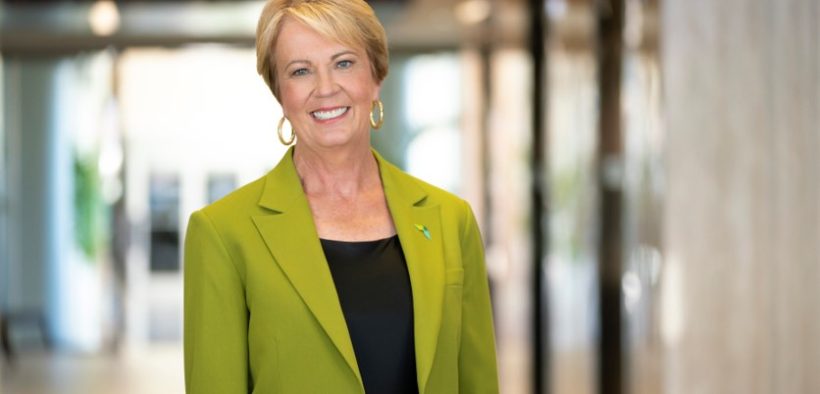Driving Change
Share

CEO Insight talks to Caryn L. Beck-Dudley, President and Chief Executive Officer, AACSB, about business education, meaningful change and a new generation of leaders.
CEO Insight: Today, business schools are not only accountable for profit, they must evolve if they are to continue to add value and make a positive impact. What can they do to achieve this and as AACSB President, what message can you give to representatives of business schools to thrive?
Caryn L. Beck-Dudley: Business Schools need to focus on the 3 Ps – people, planet, and profit – which are all equally essential components of a successful, sustainable business model. When I began my career in 1985, we were taught that profit was the most significant factor. However, it is entirely possible to be committed to pursuing societal goals whilst still making huge financial returns. Business schools should also focus on their own individual mission, and incorporate this into their research, their curriculum, and into their outreach.
Various AACSB accredited business schools, including Kozminski University, Budapest Business School, ESMT Berlin and ESCP Business School, have expressed support for Ukraine following the February 24 invasion by Russian troops. Humanitarian efforts include fundraising, setting up support centers and offering financial and mental health support to students affected by the war. These philanthropic efforts go hand in hand with a focus on profitable businesses.
CEO Insight: AACSB recently hosted the EMEA Conference. What were the main revelations of the conference?
Caryn L. Beck-Dudley: AACSB invited delegates to the EMEA Annual Conference to explore how business schools in Europe, the Middle East, and Africa navigate change and innovate to create the leaders of tomorrow. Forward-thinking educators from the region take part in insightful sessions, engaging discussions, networking community meetings and inspiring keynotes.
The recent EMEA Conference focused on how to engage Gen Z in the workforce, and how this generation will drive change. This cohort doesn’t just want a job, they want a meaningful job. Focusing on a social entrepreneurial mindset was the focus of one keynote session. The EMEA conference also explored how to innovate and remain agile and resilient. Participants networked with pioneering business school leaders dedicated to quality improvement.
CEO Insight: Business schools must show positive societal impact in their teaching, research, and community outreach efforts. What is the best way for business schools to measure impact? How can business schools enhance their probability of fixing problems like climate change?
Caryn L. Beck-Dudley: That is a big question, and is hard to quantify. To be accountable for societal impact, business schools must measure impact effectively. The question of purpose is still significant for many schools, and we have 980 accredited business schools worldwide. They are interdisciplinary and they don’t work alone. Collaboration is very important when solving societal problems and occurs by focusing on creating a positive impact on society. However, every business school is different and employs their own methods to assess data. At AACSB, we don’t dictate how the business schools measure impact.
Climate change is not a standalone problem. Tackling it requires cooperation with other educational fields, and combining different perspectives, which hopefully gives rise to the most innovative solutions.
CEO Insight: AACSB recently hosted the latest Deans conference, focused on sharing ideas and challenges to future-proof business education. One of the key focus areas of the Conference was on Generation Z and expectations on companies and institutions to evidence their commitment to social responsibility. Can you tell CEO-InSight readers a bit more about this and how reimagining higher education can serve the workforce needs of the future?
Caryn L. Beck-Dudley: At our most recent Deans Conference, more than 700 global business leaders came together to discuss the future and value of business education. One resounding theme we heard is that this next generation of leaders want, and require, their future places of employment to demonstrate the ways they are benefitting society – and how these graduates can be a part of that mission. To help our future leaders create a positive impact on society, we need to be doing everything we can to make sure business education teaches them the skills they need to succeed. One way is to make sure that they understand that subject matter content does not exist in silos – that business must work across and with other disciplines to help solve society’s toughest problems. A recent example was how the business world was able to work with the medical realm to help resolve a variety of issues during the COVID-19 pandemic. We also need to see schools partner more deliberately with companies, not only through internships but through other experiential learning opportunities to ensure that learners get hands on experience. There continues to be a lot of change and innovation, like ChatGPT, and the better higher education embraces the upcoming changes, the better prepared our learners and leaders will be.
CEO Insight: Today’s business landscape is more global, dynamic, and unpredictable than ever. To truly succeed, leaders at every level must be trained and equipped to question old assumptions, rethink existing systems, and foster lasting progress. The AACSB accreditation is internationally known as the longest-standing specialized accreditation for business programs and institutions. What makes the AACSB accreditation stand out? What does it mean to be accredited by AASCB and how can this accreditation help tackle future challenges?
Caryn L. Beck-Dudley: AACSB accreditation is an important factor in attracting and collaborating with the best schools from around the world for the benefit of students, faculty, and businesses. As well as enabling a school to benchmark against world leading, globally benchmarked standards, it provides a strong framework for schools to undertake quality improvement. It also ensures relevancy and currency through active engagement with the business community and the demand for qualified faculty who are experts in their field. AACSB-accredited schools also focus on impact, so what is taught in their programs allows learners to create a positive impact in their communities—and around the world—for years to come. Learners that attend AACSB-accredited business schools gain the knowledge, skills, and insights that ensure they will succeed in an ever-changing global workplace. Graduation from an AACSB accredited school increases the likelihood that a graduate can move offshore to study at the postgraduate level and enhances employment prospects in major international markets.
CEO Insight: ESG goals and prioritising purpose, people, and the planet have become a huge part of the business conversation around impactful leadership. Businesses in 2023 are increasingly focused on the importance of societal issues, but how else can you make the business case for the importance of these ESG goals?
Caryn L. Beck-Dudley: The ESG goals are incredibly important and offer a great guideline to companies. However, our accreditation does not require schools to use the ESG goals to report on their impact. We do use the categories set out in the SDG goals as they provide a great outline to use when categorizing their societal impact. That being said, our future, and the health of our planet depend on societal impact becoming a larger part of the business world. I believe business education has the responsibility – and privilege – of developing the next generation of leaders so that they can, in turn, make a positive impact on society. This goal requires that we do everything in our power to prepare learners for this future.
CEO Insight: What can CEO Insight readers expect in 2023 and beyond for the new generation of leaders? How will issues like sustainability, geopolitical instability, and the Great Resignation impact management education?
Caryn L. Beck-Dudley: We can expect profound change and innovation in 2023 and beyond for the new generation of leaders! I’m excited to see what their impact will be. To help prepare them, I believe business education will continue to implement significant curriculum changes, more experiential learning opportunities, and increased entrepreneurship focus which will help to prepare learners for the challenges they will face – like sustainability, geopolitical instability and the Great Resignation. I think we’ll also see more entrepreneurs in general, as learners have the right skillset post-business school to create their own ventures and to make their mark on society.

























